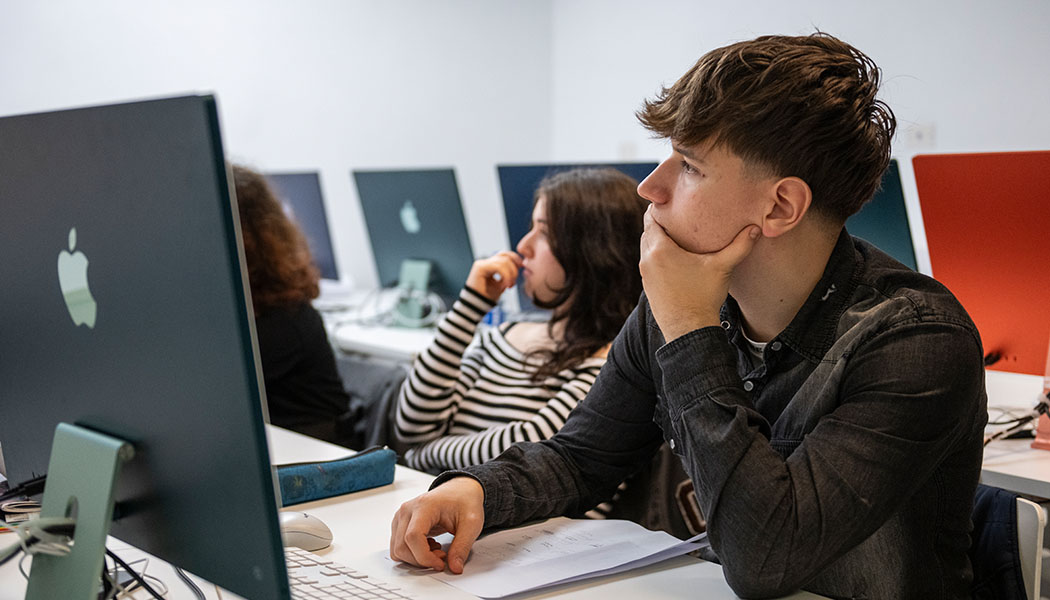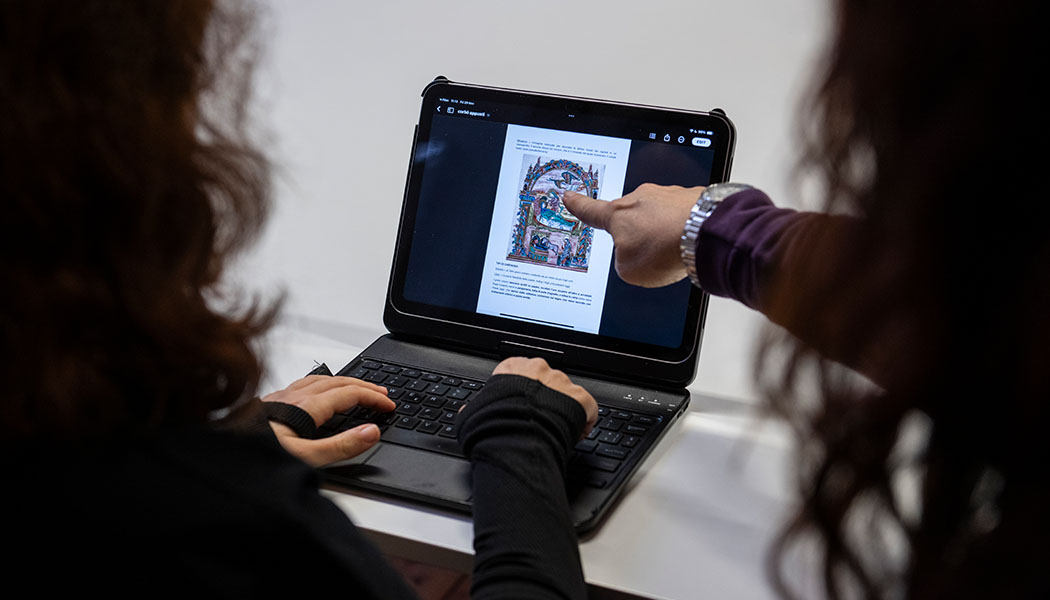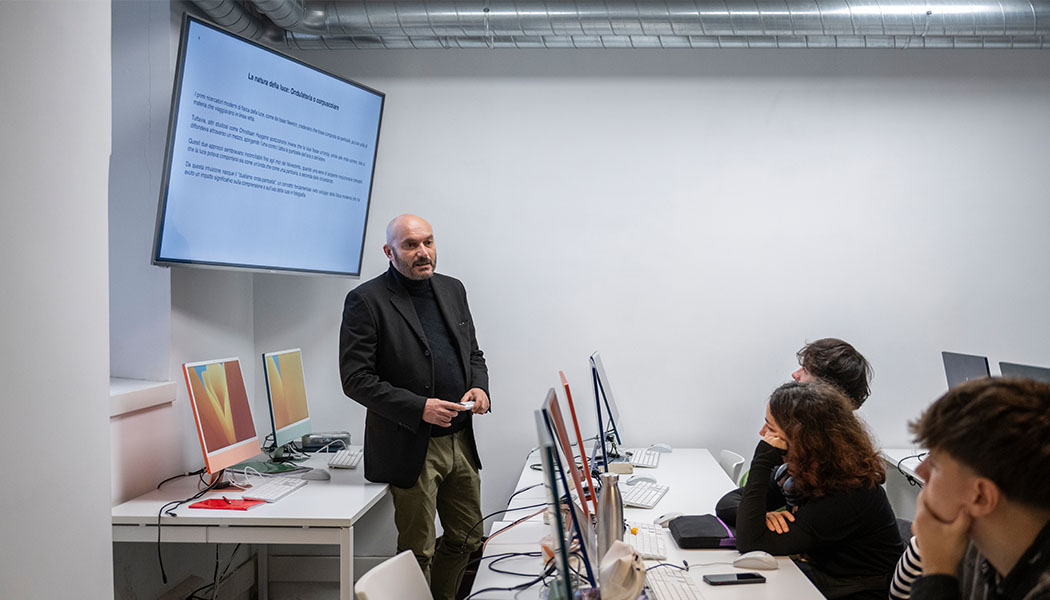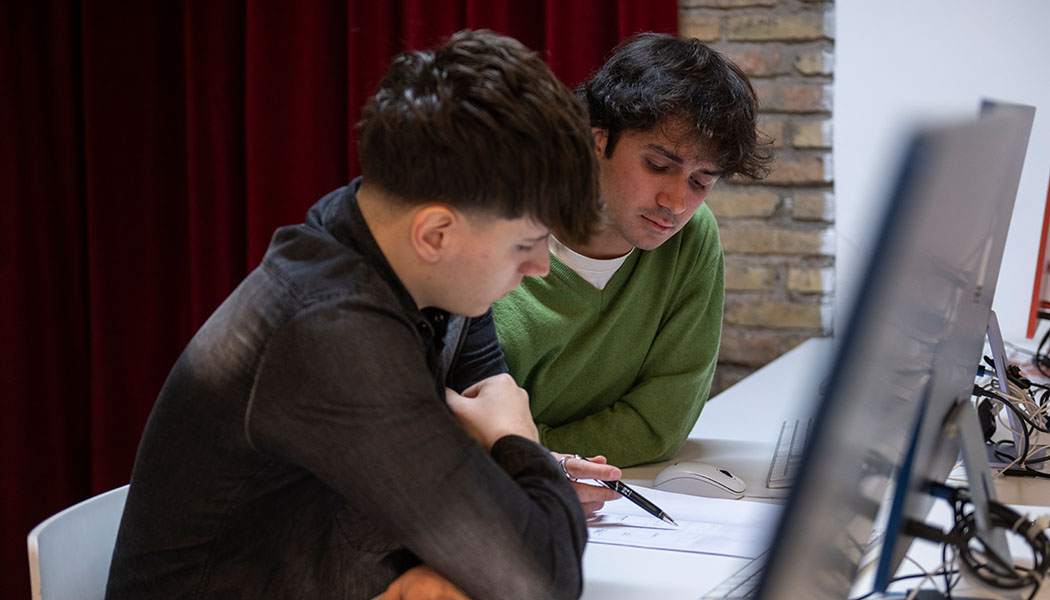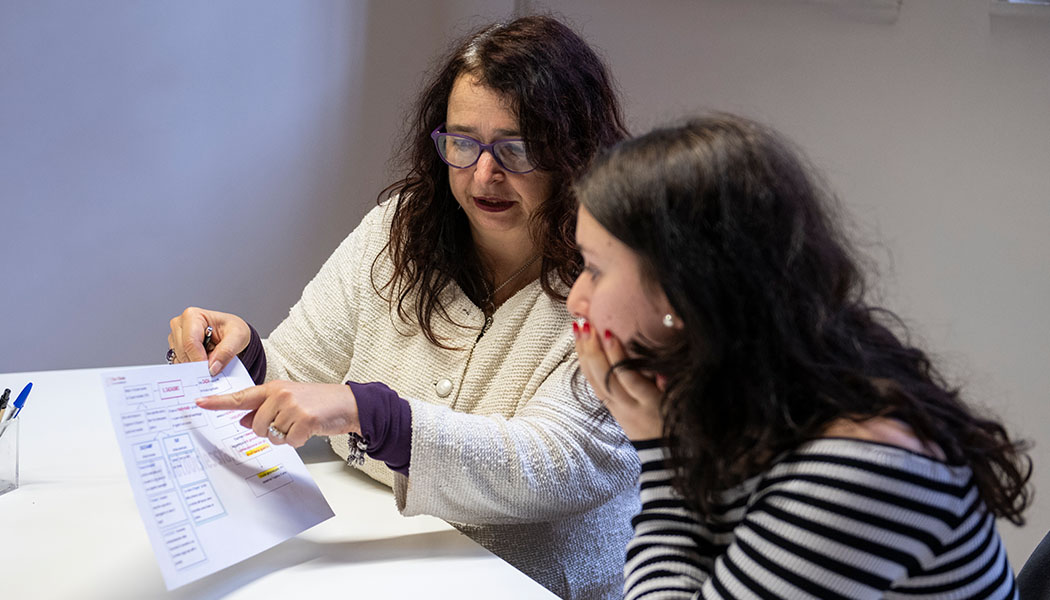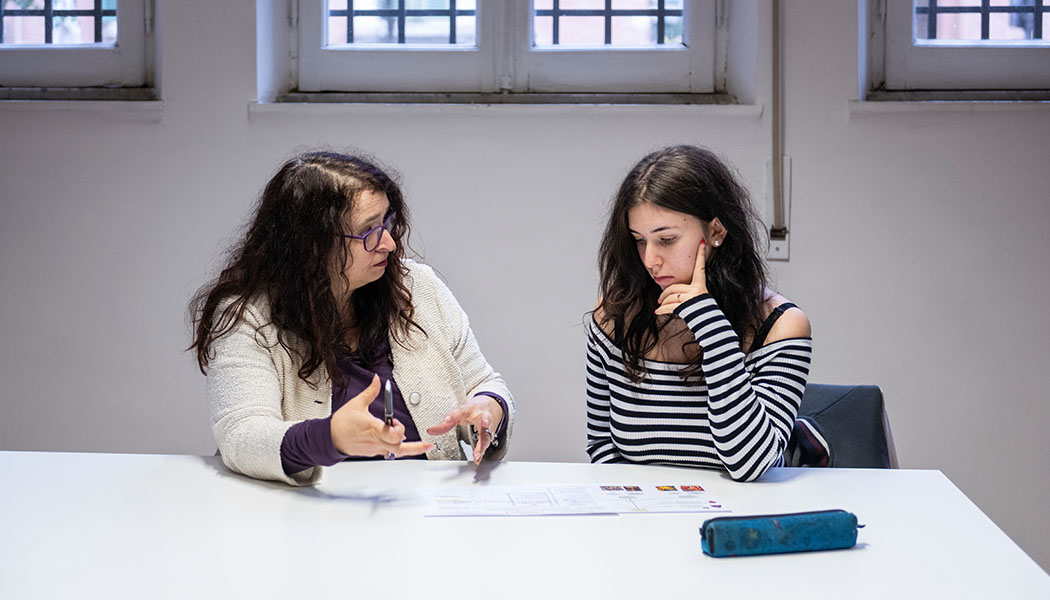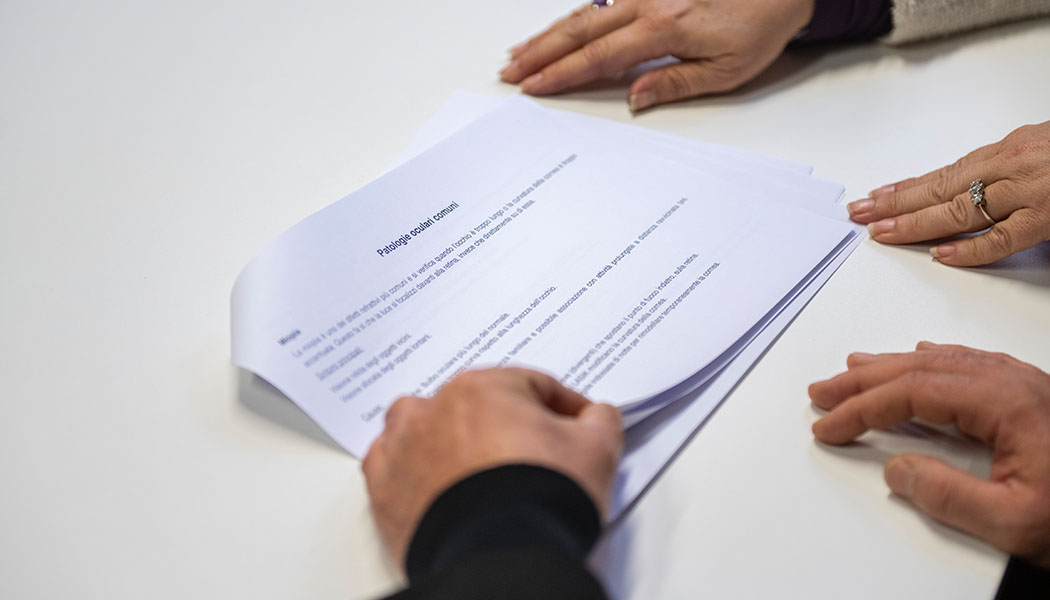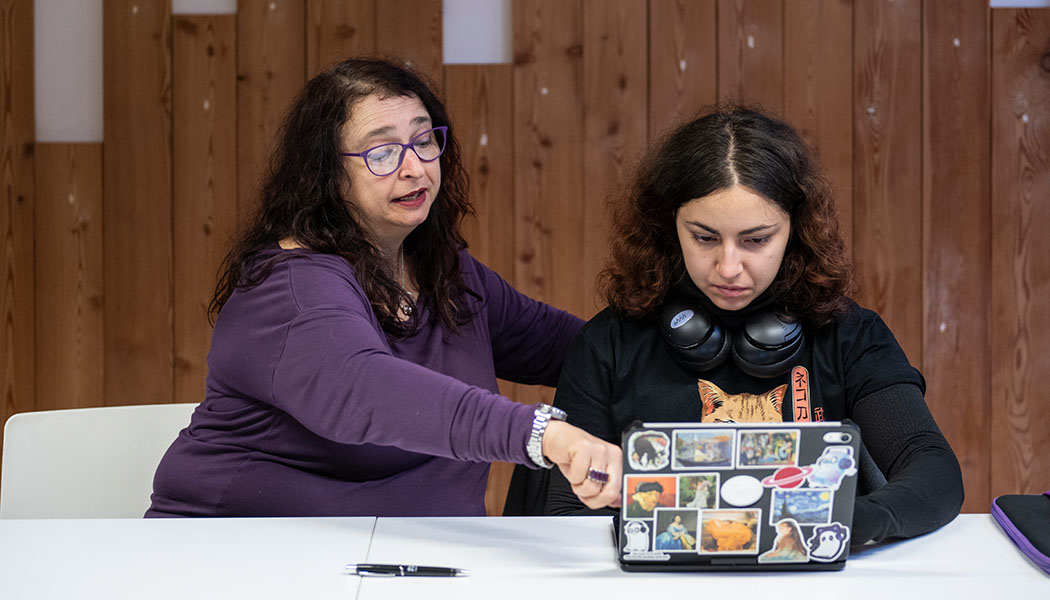As part of the student support services, RUFA has paid particular attention to those who deal daily with the so-called “Specific Learning Disorders”, usually referred to by the acronym SLD. Students with SLD present a heterogeneous set of disorders that can affect the acquisition, organization, memorization, comprehension, and use of verbal and non-verbal information. Aware that students with SLD often only need more time to organize their study, take notes, read, or produce a text, RUFA has prepared certain measures that allow the use of tools and accommodations to effectively address their educational path.
In particular, the following accommodations are available:
❯ clear, concise, and well-organized study material;
❯ extra time to consolidate knowledge;
❯ advance knowledge of the study program, bibliography, calendar, and deadlines;
❯ use of compensatory tools and exemption measures as provided by law;
❯ knowledge of the procedures for in-progress and final exams;
❯ constant dialogue with the teacher/tutor.
Starting from May 2023, RUFA established a service of “enhancement lessons” specifically for the so-called “theoretical” subjects, where students with SLD or ADHD experience greater difficulties.
Students eligible for this service are those with an SLD diagnosis submitted to the SLD Office, as well as students with disabilities under Law 104/92 that result in an SLD, who have given consent to inform their teachers.
These students will have the opportunity to attend enhancement lessons, individually or in groups (based on requests), by appointment with the Head of the Service, Dr. Paola Lancellotti, both in preparation for exams and throughout the Academic Year.
The lessons aim to:
❯ help each participating student develop a method to identify the components of the program and divide it into shorter sections;
❯ once the sections are identified, highlight the essential ones using highlighters, write keywords in the text margins, and simplify some terms for easier memorization;
❯ create concept maps, written summaries, visual schemes, etc., using their own study material (textbooks, handouts, notes, etc.) to bring to exams;
❯ practice oral repetition with the maps, in order to train memory using them.
It is now well known that a specific learning disorder, such as working memory impairment, reading comprehension difficulty, or attention deficit, makes acquiring knowledge particularly difficult without adequate visual/conceptual support.
The goal of the enhancement lessons is to provide work strategies that enable students to work independently, without our support, as well as a study method to be applied autonomously even in technical/practical subjects.
The process will undoubtedly start from each student’s strengths, such as their verbal comprehension level (given by the VCI index present in the diagnosis), to assess their listening and recall abilities for previously learned information, as well as their oral expression skills, along with observation of the level of visual-perceptual reasoning (PRI index present in the diagnosis).
The methodology to be used with each student will therefore be based on the content of the diagnosis, from which their specific difficulties emerge.
These characteristics help us understand how well the student can work with visual content, organise it, and develop reasoning skills.
For some students, it is necessary to provide “deadlines” and “study rhythms”, as they often have difficulties managing their time in preparation for exams (especially students with ADHD).
Students who request support will be assisted both in their exam preparation and afterwards, through additional lessons where further explanation suited to their learning difficulties is required. The “Guidelines for the right to education of students with Specific Learning Disorders” adopted by RUFA represent a constantly evolving document that is updated thanks to contributions and suggestions from those directly involved.
The Welcome Desk is open every Thursday from 10:00 a.m. to 11:00 a.m. at the Via Benaco 2 campus – meeting room.
It is also possible to schedule an appointment on other days or at other locations, from Monday to Friday, by sending an email to:
For administrative or office matters: segreteriasdd@unirufa.it
– to the attention of Dr. Paola Lancellotti
For academic matters: luigi.iacobelli@unirufa.it
– to the attention of Prof. Luigi Iacobelli
DSA GuidelinesRUFA Regulations for Students with SLD, Disabilities and SEN
